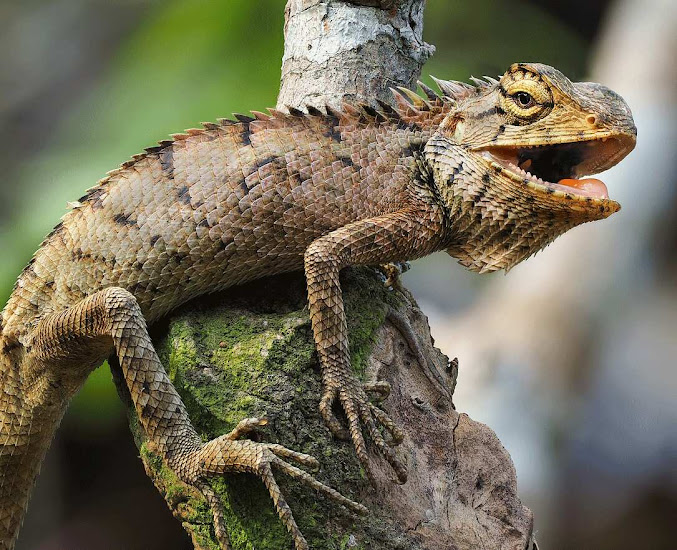Insects that Live in Gardens
Insects that Live in Gardens: A Comprehensive Guide
Gardening is a beloved pastime for many people, but it can also attract a variety of insects. While some insects can be detrimental to a garden, others play important roles in pollination and pest control. In this article, we will take a closer look at the different types of insects that can be found in gardens and the impact they have on the ecosystem.
First, let's talk about the beneficial insects that live in gardens. These include bees, butterflies, and ladybugs. Bees are essential for pollination and play a critical role in the reproduction of plants. They also produce honey, which can be harvested for personal consumption or for sale. Butterflies, while not as important as bees for pollination, are still important pollinators and are also a favorite among gardeners for their beauty. Ladybugs, also known as lady beetles, are a gardener's best friend. They feed on aphids and other small pests, helping to keep the population of these harmful insects in check.
Another beneficial insect found in gardens is the praying mantis. These large, green insects are voracious predators and will eat just about any insect they can catch. They are especially fond of aphids, mites, and other small pests.
In addition to the beneficial insects, there are also a number of pests that can be found in gardens. These include aphids, caterpillars, and whiteflies. Aphids are small, soft-bodied insects that feed on the sap of plants. They can cause damage to leaves and stems, and can also spread plant diseases. Caterpillars are the larval stage of moths and butterflies, and they can cause significant damage to leaves and flowers. Whiteflies are small, white insects that also feed on the sap of plants. They can cause damage to leaves and stems, and can also spread plant diseases.
Insects that live in gardens: a list
- Bees
- Butterflies
- Ladybugs
- Praying mantis
- Aphids
- Caterpillars
- Whiteflies
Beneficial insects:
- Bees
- Butterflies
- Ladybugs
- Praying mantis
Pests insects:
- Aphids
- Caterpillars
- Whiteflies
Natural pest control methods:
- Companion planting
- Trap crops
- Physical removal of pests
Insecticides:
- Can be effective
- Can also harm beneficial insects and other wildlife.
Some other beneficial insects that can be found in gardens include:
· Green lacewings: These delicate insects are known for their bright green color and lacelike wings. They are voracious predators of aphids, mites, and other small pests, making them a great addition to any garden.
· Ground beetles: These hard-bodied insects are active at night and feed on a variety of pests, including slugs and snails. They are also known to eat the eggs and larvae of other insects.
· Parasitic wasps: These tiny insects are natural predators of many types of garden pests. They lay their eggs inside the bodies of pests such as aphids, caterpillars, and whiteflies, effectively controlling their populations.
· Spiders: Spiders are not insects, but they are an important part of the garden ecosystem. They feed on a variety of insects, including flies, mosquitoes, and beetles, making them a beneficial addition to any garden.
In addition to these beneficial insects, there are also a number of pests that can be found in gardens. These include:
· Japanese beetles: These metallic green beetles are known for their voracious appetite and can cause significant damage to leaves, flowers, and fruit.
· Scale insects: These small, hard-bodied insects are known for their ability to suck sap from plants, causing damage to leaves and stems. They can also spread plant diseases.
· Mealybugs: These small, white insects are known for their ability to suck sap from plants. They can cause damage to leaves and stems, and can also spread plant diseases.
· Thrips: These tiny, slender insects are known for their ability to damage flowers and leaves. They can also spread plant diseases.
To control these pests, many gardeners use insecticides. While these can be effective, they can also harm beneficial insects and other wildlife. A better option is to use natural pest control methods such as companion planting, trap crops, and physical removal of pests. Companion planting involves planting certain plants together that will repel pests or attract beneficial insects. Trap crops are plants that are used to attract pests away from the main garden, and physical removal of pests involves manually removing them from plants.
Conclusion
insects play an important role in gardens. They can be both beneficial and detrimental to the ecosystem. By understanding the different types of insects that can be found in gardens and their impact on the ecosystem, gardeners can make informed decisions on how to control pests and promote beneficial insects. With the right knowledge and techniques, you can create a healthy and thriving garden that is teeming with life.













